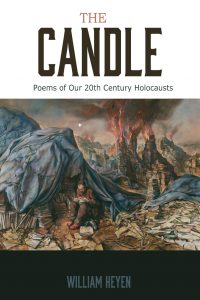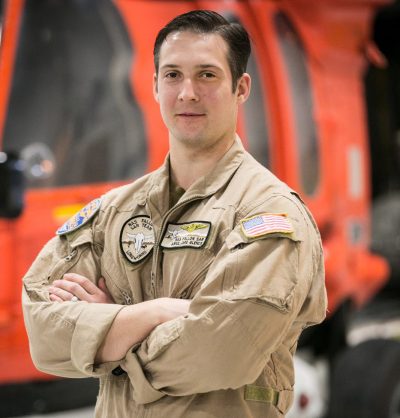Brockport poet William Heyen speaks on latest book
“I don’t think there’s another book like it in American poetry,” Bill Heyen says of his latest book, The Candle: Poems of Our 20th Century Holocausts, published by Etruscan Press this past November. “There are isolated war books, even from Whitman and Herman Melville, and then some few books about our various wars, but I don’t know of another book wherein a poet for almost 50 years dwells on war and atrocity (and beauty) in this way.”
The book is a collection of about 150 poems from eight previous books by Heyen, and concludes with a collection of 46 new poems.
“Over the past decades, I’d published several books that were all related to the Holocaust, and then a book about Viet Nam and the Gulf War, and then one about Hiroshima,” Heyen explains. “A couple years ago, I felt that I’d had my say, and wanted to select the best of these poems and bring them together.”

The Candle became a big book of selected and new poems, even though Heyen says he cut out about 100 poems from the various collections. “I’m satisfied now with how the poems speak to one another about atrocity and our human condition,” he says.
“The best ones engage our under-consciousness, and remain mysterious to me. Poet Archibald MacLeish, who befriended me years ago, said that our poems have to be smarter than we are, know more than we do, and go on speaking to themselves for always. With luck, maybe I’ve made/found some of these poems.”
Cary Nelson, editor of The Oxford Anthology of Modern American Poetry, calls the collection compelling. “No other American poet has thought more deeply about the Holocaust than William Heyen, and no other American poet has produced such a searing and distinguished body of Holocaust poems,” Nelson writes.
Heyen provided a tweet regarding the book from writer Joyce Carol Oates dated August 28, 2016: “Brilliant, harrowing, and visionary, The Candle: Poems of Our Twentieth Century Holocausts … not for the faint-hearted.”
Heyen holds a Ph.D from Ohio University and an Honorary Doctorate of Humane Letters from the State University of New York. He is Professor English/Poet in Residence Emeritus at the College at Brockport, and is a former Senior Fulbright Lecturer in American Literature in Germany.
He has won NEA, Guggenheim, American Academy of Arts & Letters and other fellowships and awards, and several of his more than three dozen books (including poetry, prose and anthologies) have won awards including the Small Press Book Award for Crazy Horse in Stillness.
The title of the latest collection – The Candle, “… shows up many times in the course of the book,” Heyen explains. It is at once a light of hope, and a black light of what Elie Wiesel said – that Auschwitz represents the death of everything, including Time. Poems hope to candle us – as I candled eggs when I was a child – see into us as we see into them.
Imagine, among the Nazi hierarchy there were serious discussions about whether or not, for efficiency’s sake, to keep lights on in the gas chambers during the killings of innocents, or to keep them dark,” Heyen says. “Where are we? The mind candles.”
One of the poems in the book, “Iwo Dahlia,” is about Heyen’s Long Island high school coach, Thad Mularz. Heyen says Mularz was from Rochester, went to Brockport after being an Iwo Jima vet, “… and was responsible for my life, to a large extent. He believed that the bombings of Hiroshima and Nagasaki were necessary. Brockport’s Sachio Ashida believed this, and he’d been trained as a Kamikaze,” Heyen explains.
Ashida is featured in the poem, “A Poetics of Hiroshima,” in which Heyen says he sympathizes with this point of view, but says, “that poetry and art must never agree. So, there it is, my faith in art as spiritual guidance.”
The Candle: Poems of Our 20th Century Holocausts is available at the Lift Bridge Book Shop in Brockport, local Barnes & Noble locations, and on Barnes & Noble, Amazon and the Etruscan Press websites.


